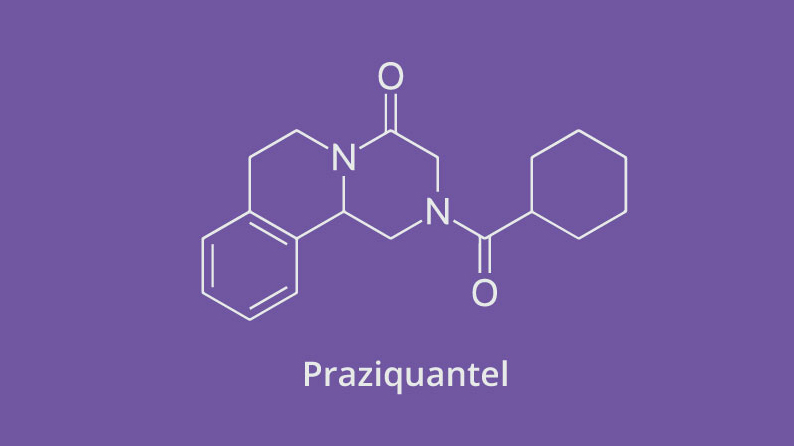Praziquantel is a medication commonly used to treat parasitic infections, particularly those caused by schistosomes (schistosomiasis) and other flatworms (e.g., liver flukes and tapeworms). While it is generally well-tolerated, it can have some adverse effects. These may include:
Common Side Effects:
1. Gastrointestinal Issues:
- Nausea
- Vomiting
- Diarrhea
- Abdominal pain
2. Central Nervous System (CNS) Effects:
- Headache
- Dizziness
- Drowsiness

3. Generalized Reactions:
- Fatigue
- Fever
Less Common but More Serious Side Effects:
1. Allergic Reactions:
- Rash
- Itching
- Swelling (especially of the face or lips)
- Breathing difficulties (rare, but serious)
2. Liver Effects:
- Elevated liver enzymes (seen in some cases, but usually mild and reversible)
3. Cardiovascular Effects:
- Palpitations
- Tachycardia (increased heart rate)

Schistosomal and Other Parasitic Infections:
In patients being treated for infections like schistosomiasis, the death of the parasites can lead to a “praziquantel-induced inflammatory response”. This can result in:
- Fever
- Chills
- Cough
- Muscle pain (myalgia)
- Other systemic symptoms due to the immune system reacting to the released antigens from dying parasites.
Rare Side Effects:
1. Visual Disturbances:
- Blurred vision (due to the drug’s effects on ocular muscles, though rare)
2. Hematologic Effects:
- Hemolytic anemia (in patients with pre-existing blood conditions, though uncommon)

Considerations:
- Pregnancy: Generally considered safe during pregnancy (Category B), but should be used only when necessary.
- Liver or Kidney Impairment: Dose adjustments may be necessary in patients with severe hepatic or renal impairment.
- Drug Interactions: Praziquantel may interact with other medications, particularly with agents that affect liver enzymes (e.g., cytochrome P450 inhibitors or inducers).
If you experience persistent or severe symptoms, or if you have a history of liver disease, it’s important to consult a healthcare provider.
